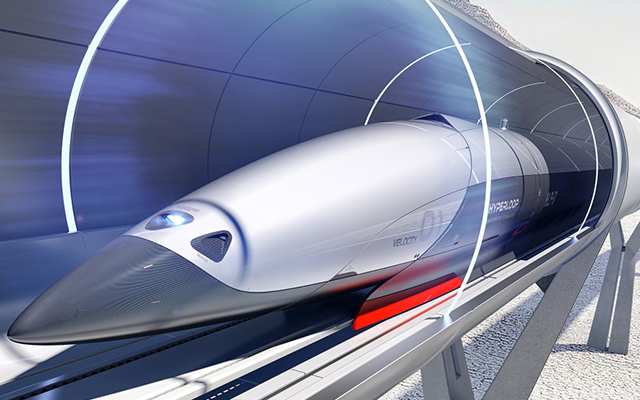
Govt forms panel to explore commercial viability of Hyperloop travel
The Narendra Modi government has formed a high-level committee to explore the commercial viability of Hyperloop as a ultrahigh speed travel system in India.

The Narendra Modi government has formed a high-level committee to explore the commercial viability of Hyperloop as a ultrahigh speed travel system in India.
Within the next six months, the panel will study Virgin hyperloop technology and its commercial viability, safety, regulation.
On November 8, the Virgin Hyperloop test run was conducted on a 500-metre track in Las Vegas in the US with a pod, as the hyperloop vehicles are called, travelling with passengers, including an Indian, inside an enclosed tube at more than 100 mph or 161 kmph.
Related News: Antivirals, spaceflights, hyperloops among 20 markets to transform economies: WEF
“We need to see how competent and safe this technology is. We would need separate regulations for such a transport system. Apart from these, we need to cautiously assess the likelihood of people choosing such a transport system, the cost as compared to metro or a bus, among other things,” a government official told Mint on Friday (November 27).
“Hyperloop will require a different set of regulations. Since it is a new technology, the regulations must be such that they can be easily implemented and adopted. Apart from strict safety norms, relevant certifications to authorize running of such a new-age transport system would be required,” Kushal Singh, partner at Deloitte, was quoted as saying by Mint.
“It is relevant to explore technological, commercial, financial (viability) and (assess) safety standards and regulations to procure new technology. It has been decided to constitute an Expert Committee,” a Niti Aayog document says, according to PTI.
Related News: From IIT-Madras to SpaceX, the dream journey of Avishkar Hyperloop
The committee has Niti Aayog member VK Saraswat as its Chairman and Adviser (Infrastructure Connectivity, Niti Aayog) Sudhendu Jyoti Sinha as its convener. Its other members are Railway Board Chairman & CEO VK Yadav, the secretaries of the ministries of Housing and Urban Affairs, Road Transport and Highways, and the Maharashtra government’s Transport Secretary.
The Defence Research and Development Organisation’s Chairman, the Delhi Metro’s Managing Director, the IIT-Delhi Director and the Chairman (Technology Information) of the forecasting and assessment council are also its members.
Hyperloop is a technology proposed by inventor and businessman Elon Musk, who is behind the electric car company Tesla and the commercial space transport company SpaceX.
The Virgin Hyperloop is among a handful of companies which are currently trying to build such a system for passenger travel. With hyperloop, vehicles accelerate gradually via electric propulsion through a low-pressure tube.
The pod floats along the track using magnetic levitation and glides at airline speeds for long distances due to ultra-low aerodynamic drag.
Maharashtra has deemed hyperloop a public infrastructure exercise and approved the Virgin Hyperloop-DP World Consortium as the original project proponent for the Mumbai-Pune hyperloop project.
In September, Virgin Hyperloop and Bangalore International Airport Limited (BIAL) signed a Memorandum of Understanding to conduct a feasibility study for a proposed Hyperloop corridor from Bengaluru airport.
The pre-feasibility study, which focuses on technical, economic and route feasibility, is expected to be completed in two phases of six months each. With speeds of up to 1,080 kmph, hyperloop could transport thousands of passengers per hour from the Bengaluru airport to the city centre in under 10 minutes, according to the preliminary analysis.
“We’re building for fast, effortless journeys that expand possibilities. Our system can propel passenger or cargo pods at speeds of over 1000 km/h. That is 3x faster than high-speed rail and more than 10x faster than traditional rail,” Virgin Hyperloop says on its website.
(With inputs from PTI)


